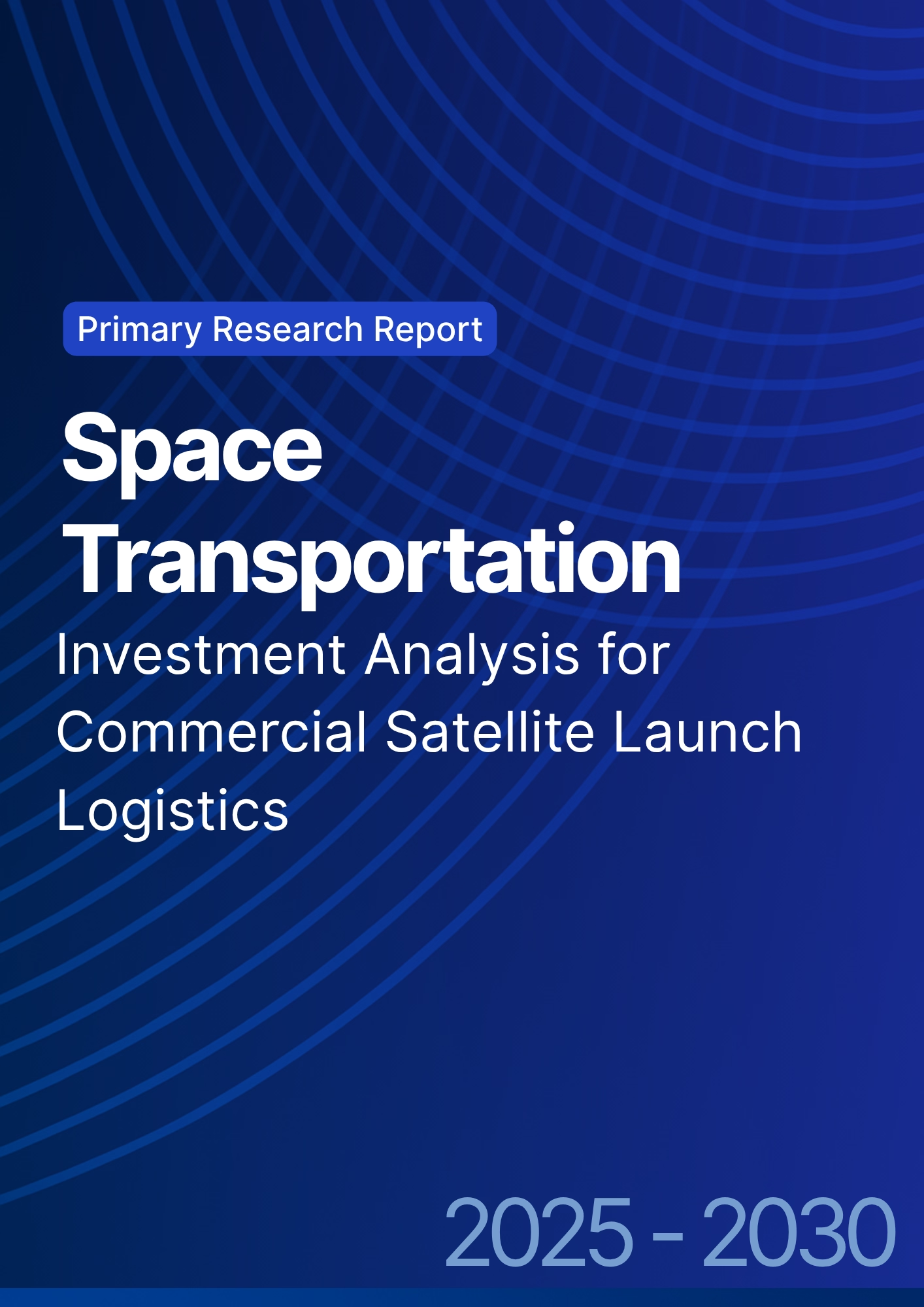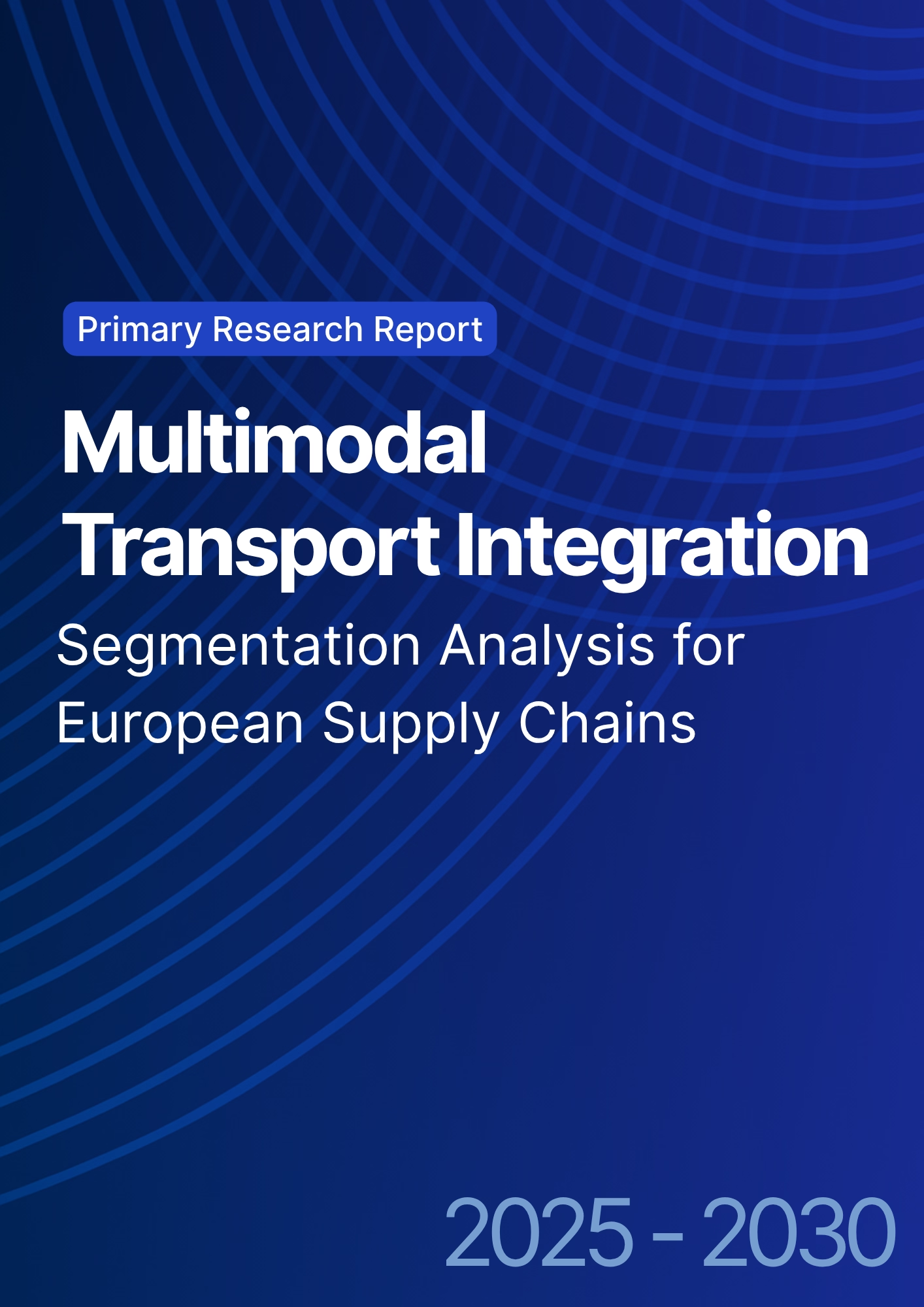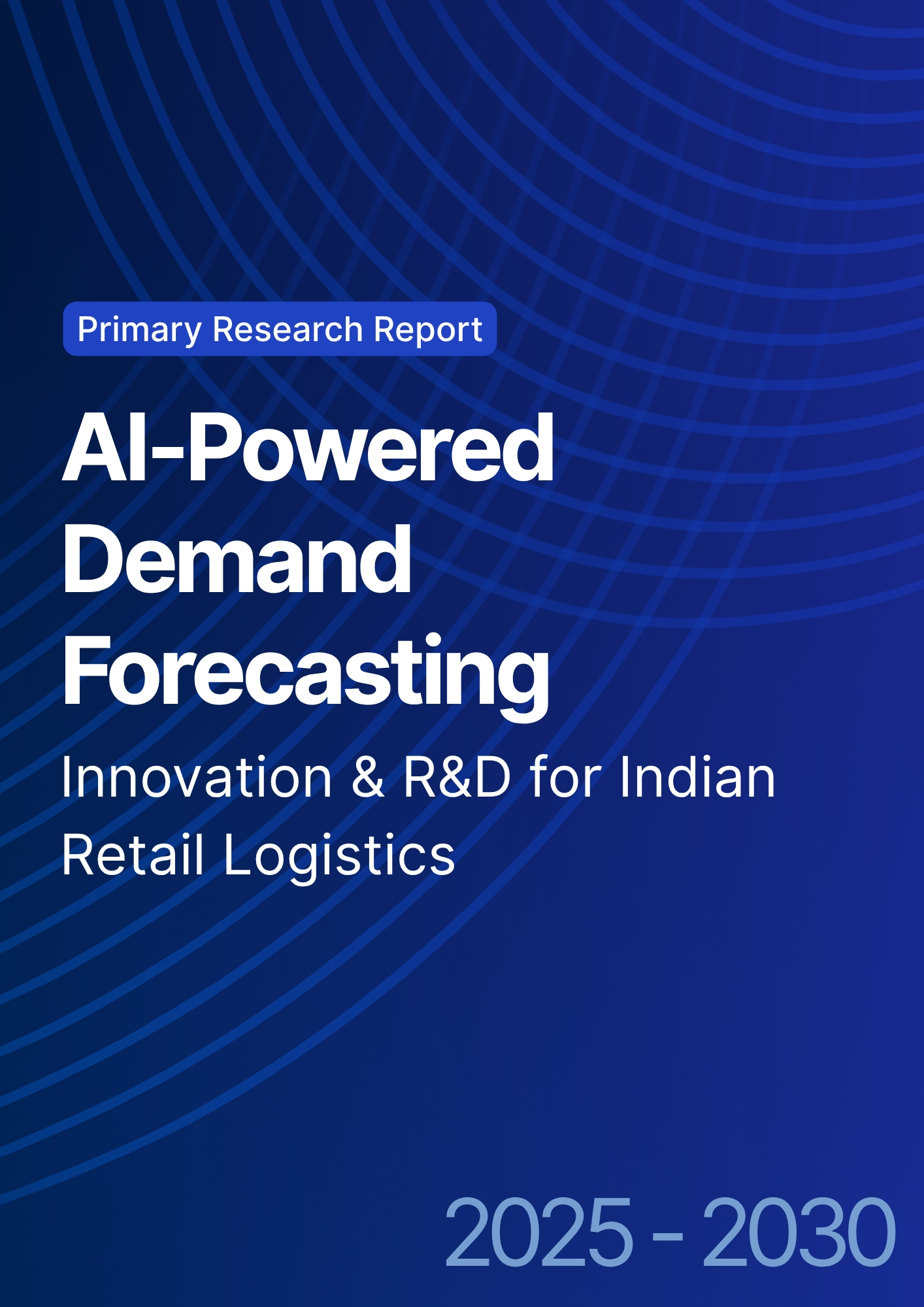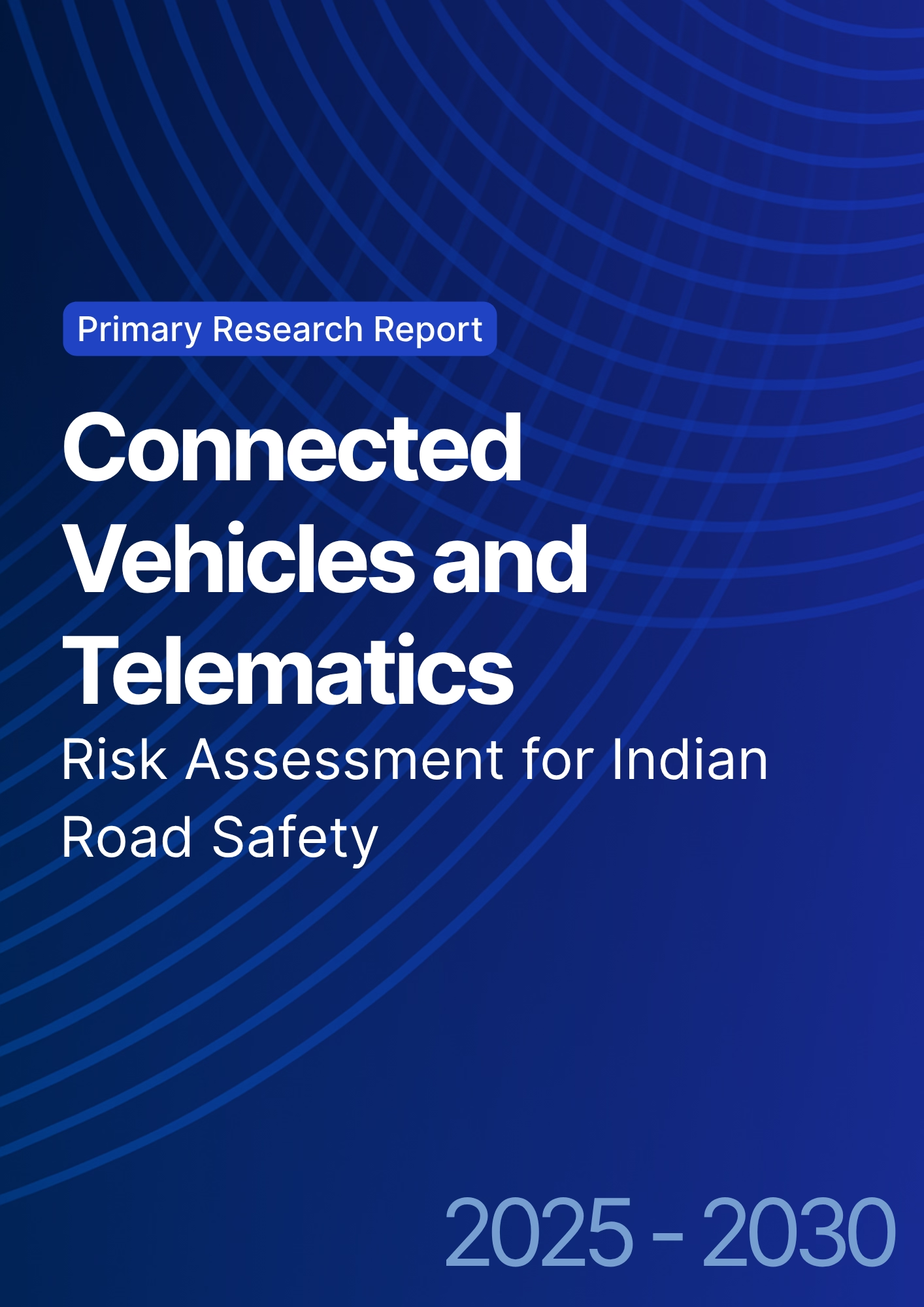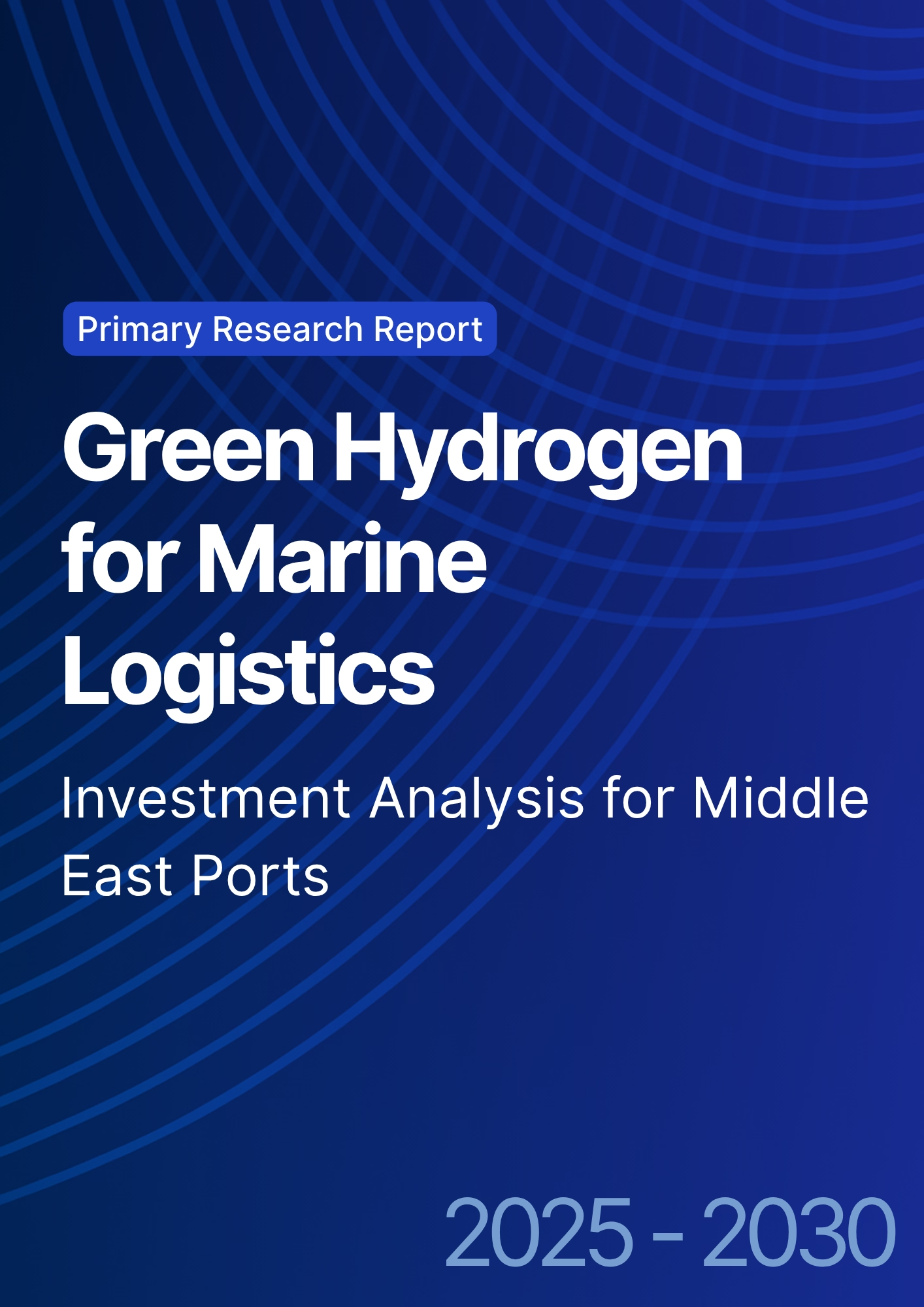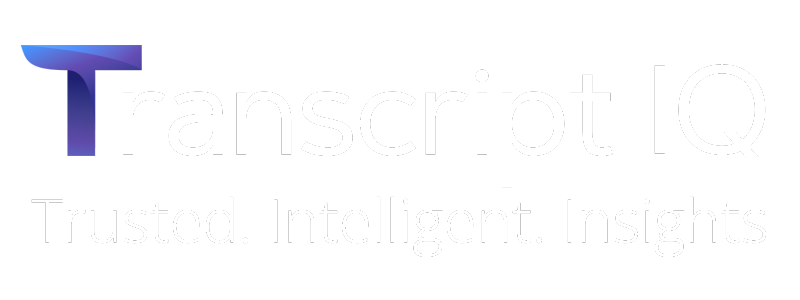

68 Circular Road, #02-01 049422, Singapore
Revenue Tower, Scbd, Jakarta 12190, Indonesia
4th Floor, Pinnacle Business Park, Andheri East, Mumbai, 400093
Cinnabar Hills, Embassy Golf Links Business Park, Bengaluru, Karnataka 560071
Connect With Us
Smart Container Tracking: Technological Advancements in Middle East Marine Logistics
The smart container tracking market in the Middle East and Africa, particularly in Saudi Arabia, is set to grow from $2.4B in 2025 to $8.7B by 2030 (CAGR 29.4%), fueled by IoT, AI-driven predictive analytics, and blockchain technologies. By 2030, 85% of containers in Saudi ports will be equipped with smart tracking devices, reducing cargo theft by 40% and improving port operational efficiency by 30%. The region’s digital transformation initiatives, such as Smart Port 2030 and UAE Vision 2030, are accelerating the adoption of real-time container tracking for enhanced supply chain transparency and logistics optimization.
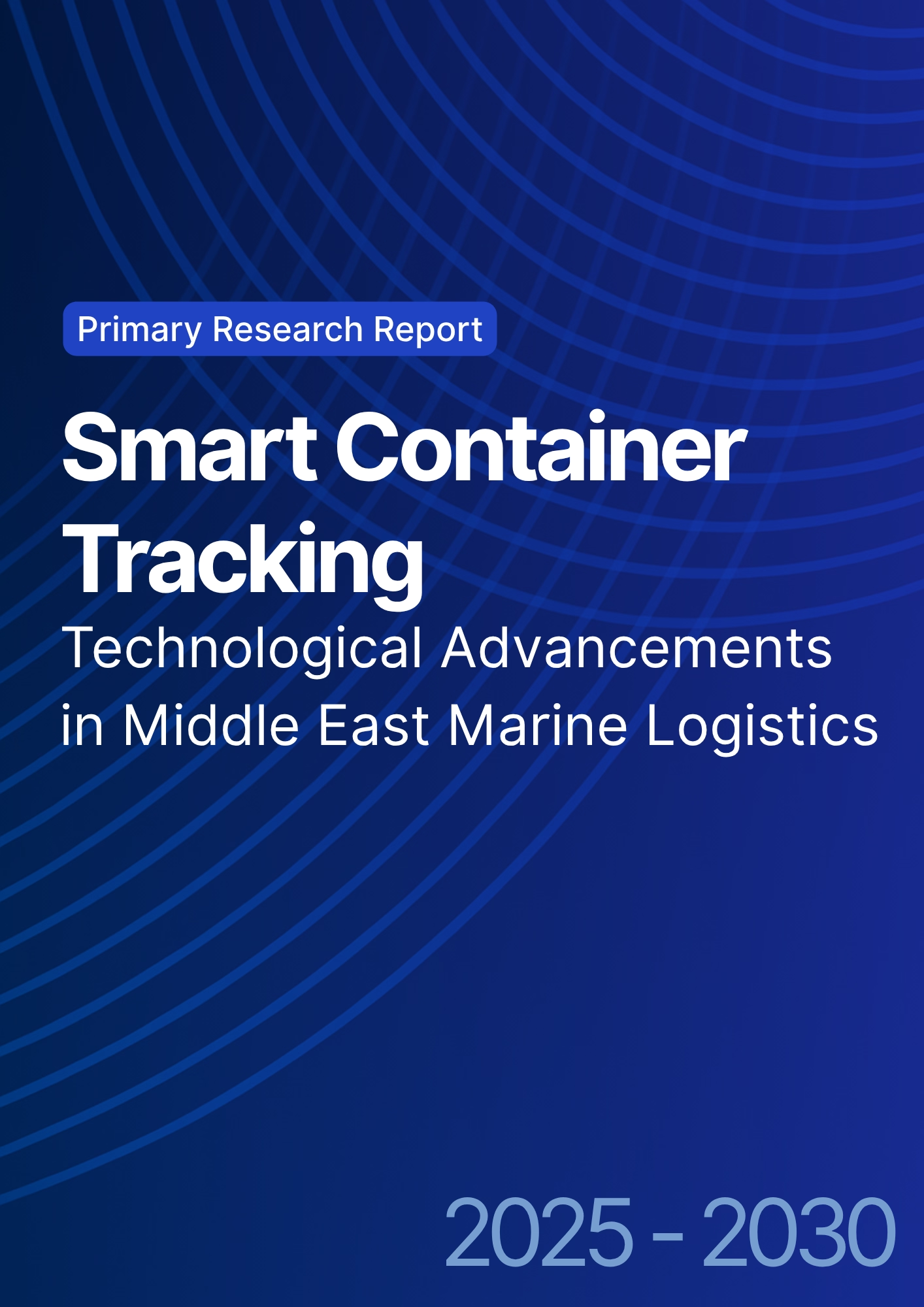
What's Covered?
Report Summary
Key Takeaways
- Market size: $2.4B → $8.7B (CAGR 29.4%).
- 85% of containers in Saudi ports to use smart tracking by 2030.
- Cargo theft reduction of 40% due to real-time tracking systems.
- AI-powered predictive analytics to optimize container routing by 28%.
- Blockchain integration improves supply chain transparency by 22%.
- UAE Vision 2030 drives $1.5B investment in port infrastructure.
- Smart container adoption to reduce delays by 25%.
- Port operational efficiency to improve by 30% through digitization.
- Private sector investment surpasses $5B in smart logistics tech.
- IoT sensor adoption for real-time data transmission increases by 50%.
Key Metrics
Market Size & Share
The smart container tracking market in the Middle East and Africa is forecasted to grow from $2.4B in 2025 to $8.7B by 2030, achieving a CAGR of 29.4%. Saudi Arabia is leading this transformation, with 85% of containers in its ports expected to be equipped with smart tracking systems by 2030. The rise of AI-driven logistics, real-time data transmission, and blockchain is driving this growth. The UAE Vision 2030 initiative is pushing $1.5B in port infrastructure investments, enabling the region to become the smart logistics hub of the future. IoT-enabled sensors and AI-powered predictive analytics will be instrumental in reducing delays by 25% and improving overall port efficiency by 30%. This growth is supported by a combination of private sector investments, government-backed projects, and international partnerships with leading logistics technology providers. By 2030, digital tracking systems will enhance global trade transparency while significantly reducing freight theft and improving logistics cost-efficiency.
Market Analysis
The adoption of smart container tracking systems in the Middle East is largely driven by port digitalization efforts, sustainability mandates, and the need for supply chain resilience. Saudi Arabia, with its strategic port locations, is actively implementing IoT-based tracking systems to ensure real-time cargo visibility and streamline customs clearance. AI-powered routing systems are expected to increase operational efficiency by 28%, reducing bottlenecks and ensuring timely deliveries. Blockchain technology is being integrated into these systems to provide a transparent and immutable record of all transactions, enhancing security and regulatory compliance. Private investments, exceeding $5B by 2030, are focused on the development of automated ports, AI-driven supply chain platforms, and sustainability-linked initiatives. By 2030, the market for smart container tracking will have expanded, transforming how Middle Eastern ports manage cargo throughput and customs clearance, ultimately reducing logistics costs and enhancing supply chain resilience.
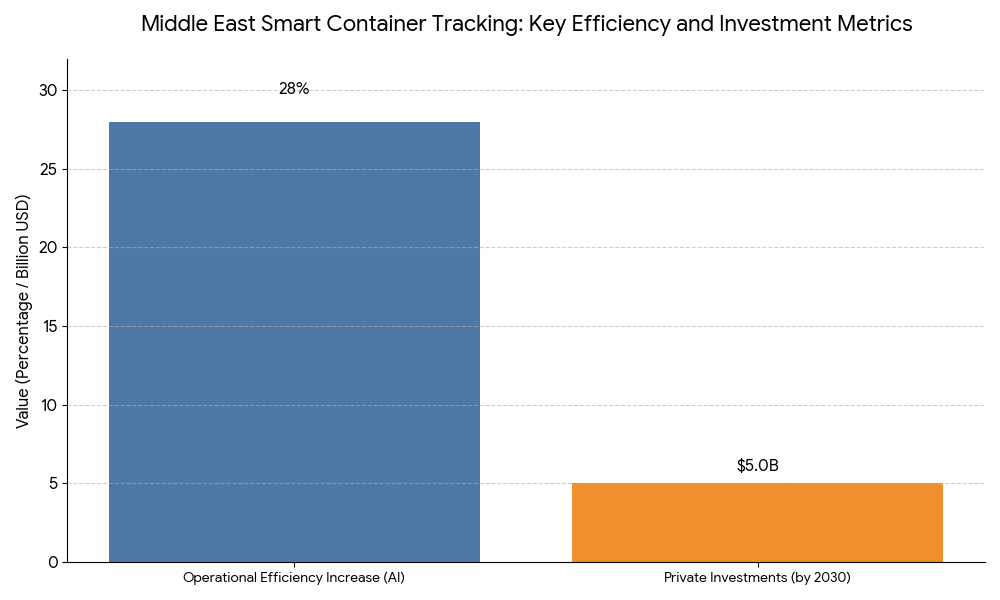
Trends & Insights
- AI & IoT Integration: Real-time container tracking increases port efficiency by 30%.
- Blockchain Adoption: 22% improvement in supply chain transparency and security.
- Security Benefits: 40% reduction in cargo theft due to real-time tracking.
- Smart Port Development: $1.5B investment in smart port technologies by 2030.
- Sustainability Efforts: Smart container tracking reduces CO₂ emissions in port operations.
- Freight Optimization: AI routing optimizes cargo movement, cutting delays by 25%.
- Private Sector Investment: Over $5B in smart logistics tech in the Middle East.
- IoT Sensor Growth: 50% of containers to be equipped with IoT sensors by 2030.
- Customs Automation: Real-time data integration reduces customs delays by 35%.
- Regional Partnerships: UAE–Saudi Arabia cooperation drives cross-border digital logistics.
These trends highlight the growing importance of smart container tracking in boosting operational efficiency, security, and sustainability within the region’s maritime logistics industry.
Segment Analysis
The smart container tracking market in the Middle East is segmented into AI-powered tracking systems (40%), IoT sensors (35%), blockchain integration (15%), and other digital technologies (10%). AI-powered tracking systems lead the market, representing 40% of total investments, with companies like IBM and GE Transportation providing key solutions. IoT-enabled sensors, responsible for 35% of investments, will be critical in improving real-time tracking and predictive maintenance. Blockchain integration will improve data security and transparency, making up 15% of market share, especially in cross-border logistics. The UAE Vision 2030 and Saudi Arabia’s Smart Ports Strategy are accelerating infrastructure investments and partnerships, which will ensure the region maintains its leadership in smart container technology. By 2030, 75% of all containers in the Middle East will use smart tracking technologies, transforming logistics operations in key shipping hubs.
Geography Analysis
Saudi Arabia leads the region with 40% market share in smart container tracking, investing heavily in port automation, AI-based tracking, and IoT integration. UAE follows closely with 30% market share, supported by the UAE Vision 2030 initiative to enhance its ports as digital logistics hubs. Qatar, Kuwait, and Oman are also focusing on smart container solutions, leveraging blockchain and IoT to streamline customs clearance and port operations. By 2030, 85% of container traffic in the Middle East will be managed through digital tracking systems, improving efficiency, security, and sustainability. Gulf Cooperation Council (GCC) members will benefit from cross-border collaboration to implement digital customs protocols and real-time cargo tracking.
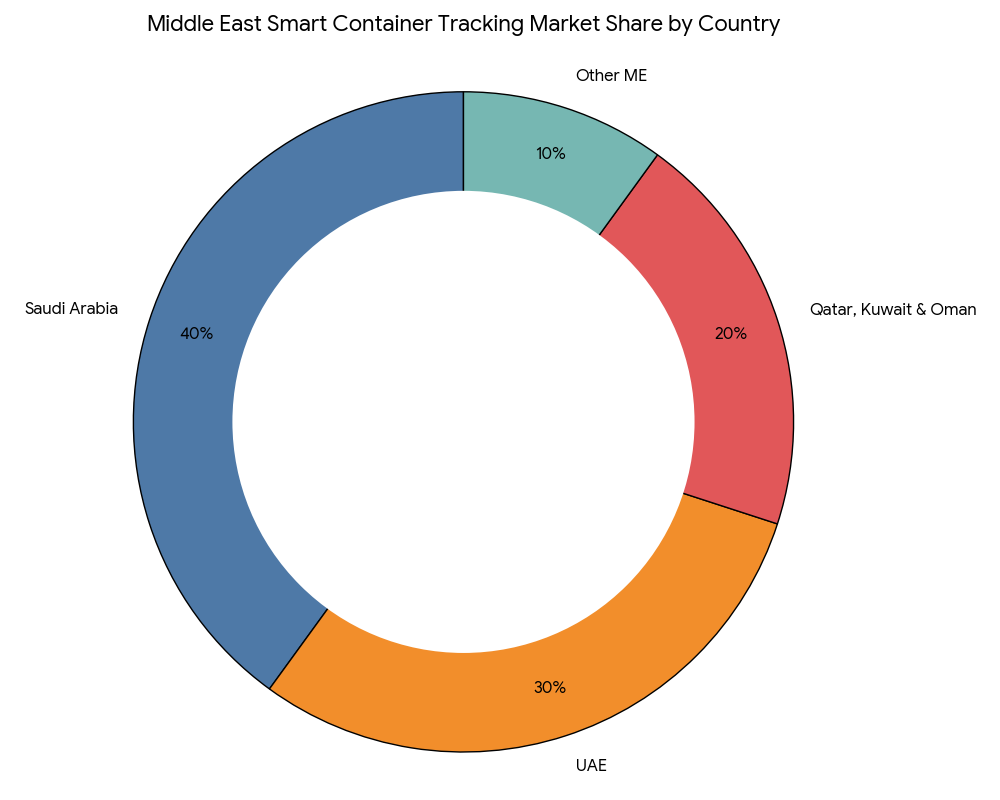
Competitive Landscape
Key players in the smart container tracking market include Siemens Mobility, Wabtec, Honeywell, and GE Transportation, controlling 65% of the market for smart port solutions. Siemens Mobility leads in AI-driven logistics and container tracking, while Wabtec and GE are focused on IoT sensor solutions and predictive maintenance for marine logistics. Honeywell specializes in sensor technologies and real-time monitoring systems for port automation. Regional players, including DP World, Dubai Ports Authority, and Saudi Ports Authority, are spearheading smart container initiatives, integrating blockchain for secure transactions and cross-border logistics management. The market is rapidly evolving, with private-sector investments and government-backed infrastructure projects driving growth in digital supply chains and green logistics across the Middle East.
Report Details
Proceed To Buy
Want a More Customized Experience?
- Request a Customized Transcript: Submit your own questions or specify changes. We’ll conduct a new call with the industry expert, covering both the original and your additional questions. You’ll receive an updated report for a small fee over the standard price.
- Request a Direct Call with the Expert: If you prefer a live conversation, we can facilitate a call between you and the expert. After the call, you’ll get the full recording, a verbatim transcript, and continued platform access to query the content and more.


68 Circular Road, #02-01 049422, Singapore
Revenue Tower, Scbd, Jakarta 12190, Indonesia
4th Floor, Pinnacle Business Park, Andheri East, Mumbai, 400093
Cinnabar Hills, Embassy Golf Links Business Park, Bengaluru, Karnataka 560071
Request Custom Transcript
Related Transcripts


68 Circular Road, #02-01 049422, Singapore
Revenue Tower, Scbd, Jakarta 12190, Indonesia
4th Floor, Pinnacle Business Park, Andheri East, Mumbai, 400093
Cinnabar Hills, Embassy Golf Links Business Park, Bengaluru, Karnataka 560071





